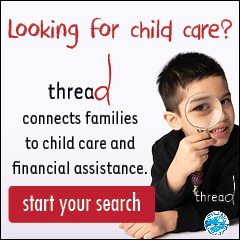How to help your child cope with anger
By Brianna Rodriguez

Kids get mad – like, really mad. It is so helpful to know how to support your child when they are overwhelmed by big emotions. As your child grows, their problems will also evolve. A child who has learned to manage their emotions will reap the benefits throughout their life. Because children rely on us to help them cope with their feelings, finding ways to support your child while they learn to manage their emotions can be invaluable.
Be realistic.
Anger is a completely normal emotion. We all get angry, even if we express it differently. It isn’t fair to expect children to control their emotions all the time even we feel caught up in the crossfire. They’re entitled to their feelings, big and small, and they should be respected the same way we expect our feelings to be respected.
Set expectations.
I tell my kids it’s OK to be mad but it’s not OK to yell, hit, or break things. That’s the law. It’s important for children to learn that no matter how upset they are, they are responsible for what they do with their emotions. Help them understand that while feeling angry is OK, it isn’t OK to inflict that anger on people or things. Consistency is crucial here so make sure all the grown-ups in their life also know the expectations.
Keep your cool.
When kids are lashing out, it can be hard to manage our own emotions. When kids get angry, they may say hurtful things, scream, and hit or kick. It can feel like you are under attack but losing control of your emotions will only make things worse and can be a recipe for disaster. If you feel yourself starting to get overwhelmed, reel it back in. Count to 10, take deep breaths, or if it’s safe to do so, walk out of the room. You can’t help a struggling child if you’re struggling too.
If you do lose your cool.
No one is perfect. It doesn’t make you a bad parent – it makes you human. If a disagreement with your child doesn’t go the way you planned, don’t be afraid to apologize to your child and talk about how you could have managed your own emotions differently. The important part here is that you learn from your experience and apply your new skills next time.
Empathize.
When my first child was small, she had a tantrum. I believe it was over shoes. I had the sudden realization that it was possibly, and quite literally, the worst thing that had ever happened to her. While I found this somewhat amusing, it was obviously traumatic for her. Remember to handle your child’s feelings with care because, no matter how trivial the issue may seem, they’re hurting. Don’t forget that they’re learning how to manage these new, big emotions and they can’t do it without you.
Communicate.
A child who can express their feelings is easier to help than a child who cannot. Encourage them to label their emotions. Are they feeling mad? Sad? Are they hungry or tired? By labeling their emotions, they are communicating their needs. This will teach them to tend to their own needs and/or know how to ask for help.
Be the example.
If we can’t control our anger, how can we expect our children to? Children mimic the grown-ups in their life. The best thing we can do for our children is learn how to manage our own big emotions. Take a deep breath, count to 10, and go for a walk.
Always make up.
If your child is left simmering after a bout of anger, give them some space, and check in later. Children need to know that they are loved and supported. As soon as they’re ready, reassure them that you love them and hug it out.










